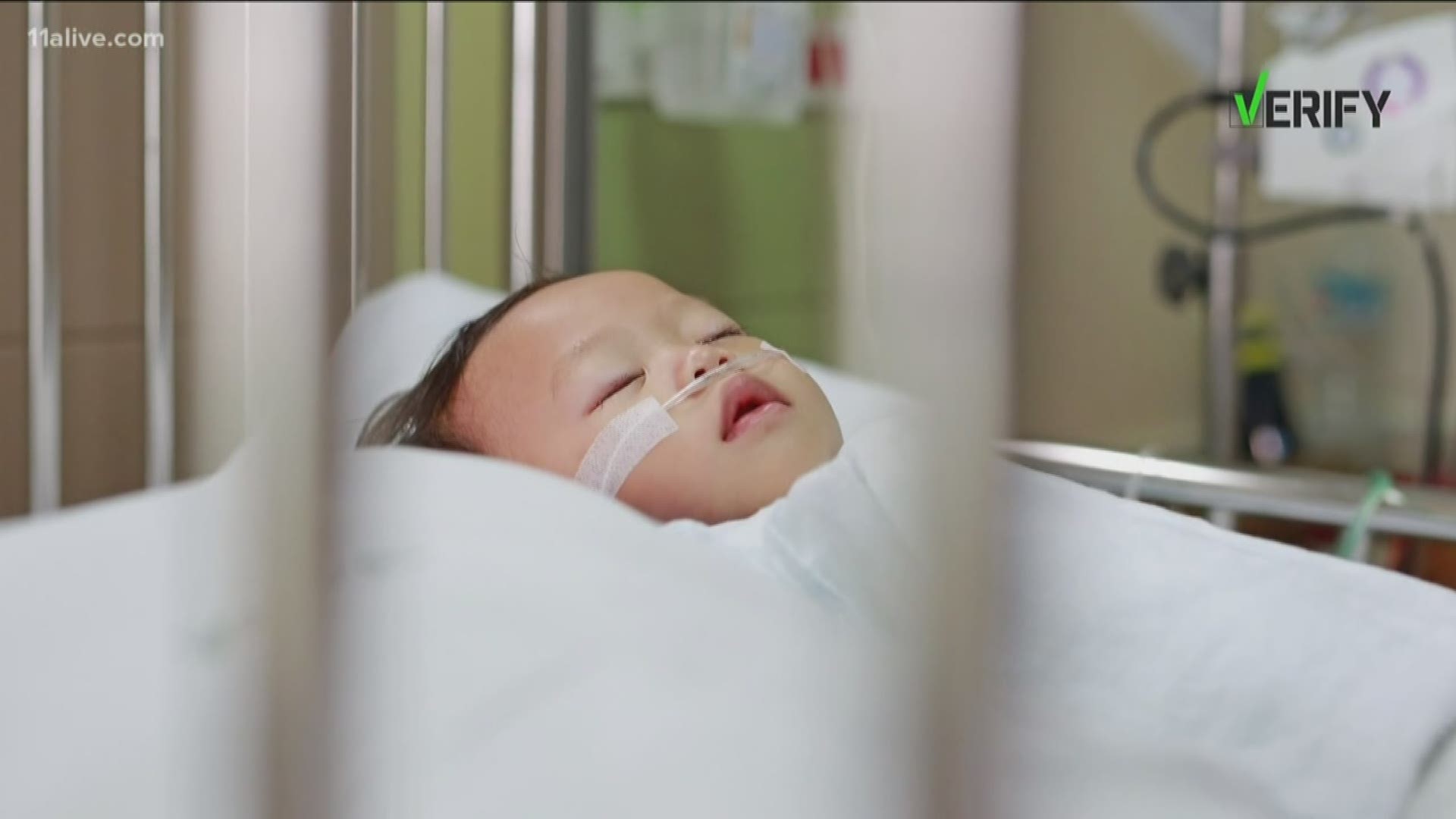ATLANTA — It's a scary diagnosis for a parent: RSV, the respiratory virus that makes it hard for children to breathe.
After her infant daughter was hospitalized with RSV, Cassi Robertson wanted to know why there's not more info about a medication that could potentially keep babies from getting sick.
"We found out that there is an injection called Synagis," Robertson said, "that can prevent or lessen the severity of the RSV infection. When we asked if she could have the injection, we were all told she doesn't qualify because she was born at 30 weeks instead of 29 weeks."
According to the Centers for Disease Control and Prevention, more than 57,000 kids younger than five are hospitalized every year due to RSV, and there's no vaccine to prevent the virus. But according to the CDC's website, palivizumab, sold as Synagis, may protect some babies.
For clarification on which infants are recommended to receive the medication, we turned to the American Academy of Pediatrics.
"Research has shown that the benefits of palivizumab to prevent RSV are limited, with little effect on total hospitalizations due to RSV and no evidence that it saves lives," Dr. Mary Caserta, a member of the AAP Committee on Infectious Diseases, said in an email.
"We know that this medication is more beneficial to high-risk infants, and that is why our recommendations focus on providing the drug to those who stand to benefit from it," she said.
The AAP's guidelines lay out high-risk infants as those born before 29 weeks gestation, and infants with certain chronic illnesses, including congenital heart disease, chronic lung disease or a compromised immune system, according to Casserta.
But what about cost? If not covered by insurance, Synagis runs around $1,573.22 per 50 mg vial and $2,970 per 100 mg vial, according to a company spokesperson. While dosage varies depending on the child's weight, dose helps protect a child for approximately a month.
RELATED: Georgia saw some of the highest declines in kindergarten vaccination of any state this decade
According to both the AAP's policy and Dr. Caserta, cost is considered when deciding policy but it's "not the main reason" for such guidelines.
"Although the data for the cost of a treatment is not the major factor in deciding on policy, it is one important piece of information to consider in public health decisions," Caserta said. "The cost of palivizumab was not the main reason for the AAP policy decision in 2014."
The Synagis website also indicates that it's possible for babies who get the medication to still get RSV.
"AAP is committed to regularly reviewing the data and updating policy as necessary based upon new information. As pediatricians, we are always working to find ways to prevent disease and keep families healthy and thriving. We are hopeful that new products will become available in the future to more effectively prevent RSV infection and disease."
11Alive also reached out to Children's Healthcare of Atlanta for clarification on Synagis/palivizumab usage:
"While we cannot comment on a specific patient, Children’s Healthcare of Atlanta always adheres to the latest AAP guidelines and policies for the use of palivizumab in patients. The most current AAP policy statement and technical report can be accessed online. Additionally, educational RSV resources for parents can be found at www.choa.org/rsv."
MORE VERIFY

